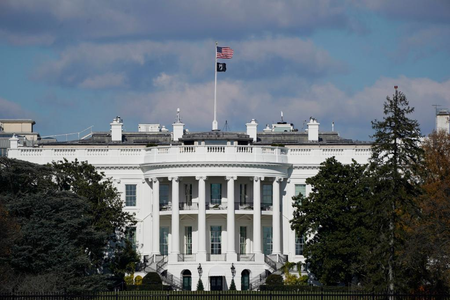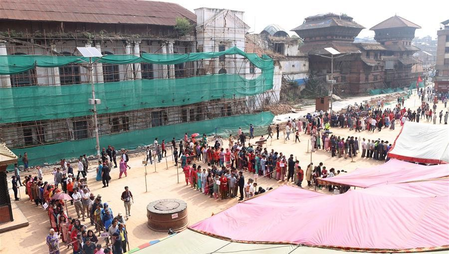
New Delhi: That Muhammad Yunus, the Chief Advisor of Bangladesh’s Interim Government, continues to be suspicious of the civil society in the country has been proven once again with the arrest of reputed fellow economist, 71-years-old Professor Abul Barkat.
A former Chairman of Janata Bank, Barkat was arrested by the Detective Branch of the Dhaka Metropolitan Police in connection with a corruption case on July 10.
His bail plea was rejected as Bangladesh’s Anti-Corruption Commission (ACC) said that Barkat, arrested in connection with a 297 crore Taka embezzlement case involving Annontex Group, might go into hiding or influence witnesses and disrupt the investigation, if granted bail.
Barkat has been one of the few sincere advocates for minority rights in Bangladesh’s history. Unlike many who only spoke about minority issues, he provided detailed research exposing the injustices faced by the minorities. Analysts reckon that this may be the reason behind the actions taken against him.
In his publication titled ‘Political Economy of KHAS Land in Bangladesh’ published in January 2001, Barkat’s research revealed how the Enemy Property Act was and is still used to seize properties of the minority Hindu population in the country. In his study ‘The Political Economy of Agricultural, Land, and Water Reforms in Bangladesh’, he further detailed that over 11.3 million Hindus were forced to leave the country from 1964 to 2013.
He highlighted that on an average, as many as 2,30,612 Hindus left Bangladesh each year (632 daily) and, if the trend continues, the Hindu community in Bangladesh may disappear within the next two decades.
Barkat has also been an unflinching critic of radical Islam and Bangladesh Jamaat-e-Islami (JeI). He was arrested on the basis of a fabricated case filed with the ACC, now a blueprint of Pakistan’s ISI.
Notably, the research by Barkat found varying daily disappearance rates of Hindus during different periods: 1964–1971 (705 per day), 1971–1981 (521 per day), 1981–1991 (438 per day), 1991–2001 (767 per day) and 2001–2012 (674 per day).
Barkat had alerted that there would be no Hindus in Bangladesh in the coming 30 years if the current level of exodus continued.
The Bengali book by Abul Barkat on Political Economy of KHAS Lands in Bangladesh – ‘Bangladeshe Khasjami-Jala: Daridra-Boishommyo Bemochener Rajnoitik Orthoniti’ (The Khas Land in Bangladesh: Political Economy of Inequality and Poverty Alleviation) – published in March this year is a comprehensive research work on the subject.
Besides Barkat, it has been authored by eminent economists like Sheikh Ali Ahmed, Faisal M Ahmed, and Muhammad Sazzadul Karim. The book attributes that today, around 4.5 million people in Bangladesh remain landless, often entrapped in poverty and social marginalisation. Though the government has introduced land distribution initiatives, complex legal frameworks and systemic corruption is causing much damage and delay.
Now, identification and management of ‘Khas Land’ (Government Land) and water-bodies, distribution of the same to the landless and poor people, retention of such land and water-bodies by the landless, and pertinent rules and practices within the prevailing socio-politico context of Bangladesh constitute prime issues of agrarian reform. Sadly, 2.6 million acres of the original ownership of the Hindu community has been occupied by the rich segments of the Bangladeshi society who are an integral part of the power structure.
Yunus is using the ACC to mount arrest on intellectuals, supporters of the Awami League, religious minorities and on common Bangladeshis. The desperate attempts seem similar to those made in the West Pakistan just before the Liberation War of Bangladesh in 1971.
Yunus is deliberately doing this to keep himself at the frontline. He has a total control of the media and continues to engage in political repression by suppressing dissent. Yunus has now also figured out well how to control the masses.
It is pertinent to point out that Barkat has repeatedly received death threats from extremist outfits since 2004 because of his research and writings on the economics of fundamentalism in Bangladesh. Deeply hurt and outraged, every conscientious citizen of Bangladesh fears that his arrest without a warrant is an attempt to enable those crimes to be carried out under state custody.
Statistics reveal that 136 people have been murdered in Dhaka alone from January to April, this year. Nationwide, the number exceeds 1200. In contrast, during the same period, the murder count in Dhaka was 55 (2021), 54 (2022), 51 (2023) and 47 (2024).
On July 10, the world witnessed the brutal murder of Lal Chand, a local businessman, with the perpetrators not only crushing his body and head with stones but also dancing on his corpse.
Bangladeshis are fighting for survival in Yunus’s totalitarian regime – this was certainly not the ‘change’ the student-led movement wanted for common people of the country with no past to mourn and no pride to defend.
Barkat has been arrested by the Bangladesh authorities for speaking up for the minorities and exposing land grabs and attacks on Hindus by extremists.
In today’s Bangladesh, the illegitimate, unelected, non-transparent interim administration of Yunus – backed by the Pakistani and Chinese intelligence through the JeI – has made defending human rights a punishable offence.
(The writer is an expert on South Asia and Eurasia. He was formerly with Manohar Parrikar Institute for Defence Studies and Analyses. Views expressed are personal)
–IANS
/as




